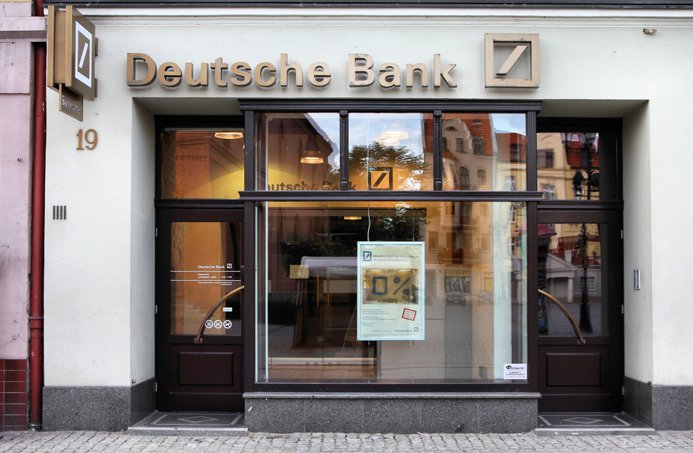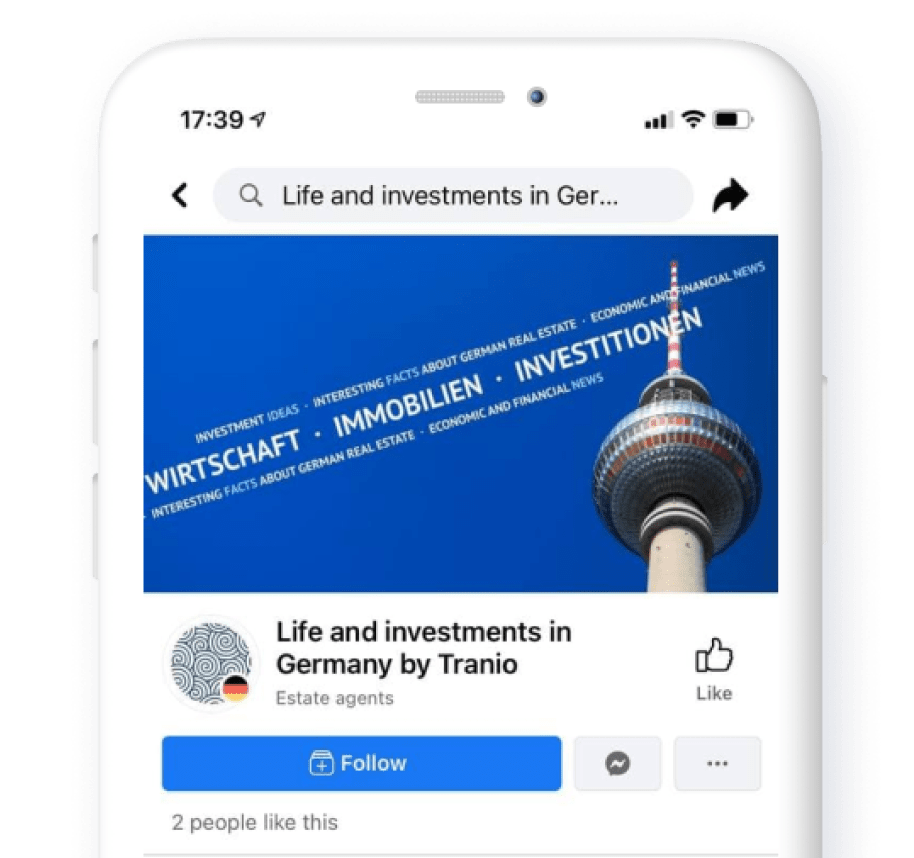Buying property in Germany
Purchasing process duration
Transaction costs
Mortgage rate
In Germany, foreign nationals can buy real estate of all types without limits: land plots, residential and commercial properties. Germany is the seller’s market, for which reason it is usually the owner who dictates the terms of the sale and the buyer who pays the agent’s (realtor's) fee.
Major costs (as a percentage of the purchase price) | |
|---|---|
Purchase tax | 3.5–6.5% |
Notary fee | 1.5–2% |
Real estate agent’s commission (for the buyer) | 3.57–7.14% |
Property registration fee | 0.8–1.2% |
Total: | 9.37–16.84% |
Extra costs | |
|---|---|
Independent property appraisal before mortgage | €1,000-2,000 |
Mortgage arrangement | 1% of the loan amount |
Legal entity registration | €2,500 |
Due Diligence (property audit) | 0,5–1,5% of the property value |
Trust account fee | 0.25% of the property value |
This article describes a typical algorithm for buying an apartment in Germany. Details of the procedure and the order of certain stages may vary between transactions.
Step 1: property selection
The buyer decides on the purpose of the purchase, property type and budget and contacts an agent. They sign a brokerage agreement which obliges the buyer and the seller to pay a total commission of (3.57% to 7.14% of the property value, including VAT) at the time of the purchase. The amount to be paid by the buyer depends on the location. From December 23, 2020, in Germany, a law introducing an equal commission for the buyer and the seller for the transactions involving detached homes or apartments, comes into force. The new law does not cover purchases of investment property.
The client chooses a suitable property from what the agent can offer.
At this stage, the buyer usually decides whether to register the purchase to an individual or a legal entity. The rental income tax amount for leased apartments depends on this. For individuals, the tax is calculated at a progressive rate ranging from 14.77% to 47.475% (including the solidarity surcharge), while for legal entities the rate is fixed at 15.825% (on condition that property leasing is the only commercial activity performed by the legal entity). Company registration takes 2–4 weeks and costs €2,500. Its further maintenance costs €500 per month.
— Can a buyer purchase an apartment without coming to Germany?
— The buyer’s presence is only required for two procedures: opening a bank account and registering a legal entity. For the other stages of choosing and buying a property, a power of attorney can be issued in the client’s home country to his/her representative in Germany and apostilled. A power of attorney form can be obtained from the lawyer who formalises the transaction and who will also help to find a certified translator.
Step 2: reserving the property
Having chosen a particular apartment, the buyer signs a reservation agreement with the seller. Under this agreement, the agent books real estate property for the time needed to draw up the sales agreement and conduct other preparations. As a rule, when signing the agreement, the buyer pays a deposit.
During transactions involving commercial real estate the parties also sign the letter of intent (LOI), containing key transaction terms and closing date.
Most often, the client does not pay a deposit and has financial obligations to the seller when signing LOI.
At this stage, the buyer opens a current account with a German bank to pay for the purchase. The same account can be used to pay taxes, utility bills, compensate for accounting services and receive rent in the future. If the client takes out a mortgage, the account is usually opened with the bank that issues the loan.
To open an account, the buyer provides a CV, a passport and a documentary proof of legal money origin are obliged to perform customer due diligence as required by the Know Your Customer (KYC) procedure aimed to prevent money laundering and criminal activity financing. Opening a bank account usually takes 5 to 7 days, though in some cases KYC may require several weeks to complete.
Step 3: preparatory actions
As a rule, before purchasing expensive apartments buyers order a comprehensive property audit (Due Diligence). It may include technical audit, legal review, tax analysis and transaction risk assessment. Due Diligence takes about a month and costs between 0.5% and 1.5% of the real estate price depending on the property's features.

At the same time, the buyer applies for a mortgage if required. Depending on the Apartment value and the bank's terms and conditions, non-residents can get 40–70% LTV loans at 1.5–2.0% per annum in Germany. The average loan term is 15 to 20 years.
Mortgages in Germany are a cheap way for rental property owners to substitute some part of investment, increase ROI and reduce the income tax payable. Loan payments are deducted from their incomes, reducing the tax basis.
Before issuing a mortgage, lending banks require their clients to get an independently certified appraisal to assess the property’s liquidity and risks. This appraisal is an extra quality guarantee for the client and costs €1,000 to €2,000 on average. Mortgage costs comprise about 1% of the loan amount and are paid by the buyer upon the issuance of a loan.
Step 4: signing the agreement
To formalise the transaction the buyer and the seller hire a notary. The notary draws up the sales agreement and negotiate the transaction details with both parties.
— Who chooses the notary?
— Usually, the buyer does this, as they pay the notary fee. In Germany, all notaries are independent contractors and represent state bodies.
Along with other details, the notary checks the land register (Grundbuch) for the previous and current owners of the property, any outstanding restrictions, mortgage and third-party right encumbrances.

The notary draws up the final agreement in German and specifies the contract date as soon as all the clauses have been agreed upon. The buyer and the seller sign the agreement in the notary's presence.
Step 5: registering and paying for the transaction
Once the agreement is signed, the notary places a new preliminary property ownership record on the land register. The buyer pays the remaining part of the apartment price. Depending on the agreement terms, the money is either directly to the seller or through a trust (typically during major transactions).
If there is a mortgage encumbrance on the property, the notary usually arranges the mortgage to be removed by the seller's bank on condition of repaying the debt, the notary usually arranges the mortgage to be removed by the seller's bank on a condition of repaying the debt. In this case, the buyer transfers the required amount to the bank and the remaining sum is received by the seller.
After paying, the buyer gets the keys and becomes the economic owner of the Apartment, can use it or rent it out. The buyer pays the transfer tax, the agent’s, the notary and registration fees. All these costs typically comprise about 10-17% of the property value.
Once the seller acknowledges the amount receipt and the tax authorities verify the payment of tax, the notary lodges a request for placing a definite record on the land register. On the grounds of this record, the sales transaction is considered to be closed and the buyer becomes the legal owner of the apartment.
Sample purchase costs for a 53 m² newly-built one-bedroom apartment in the Berlin locality of Wilmersdorf.
Value, € | 380,300 |
Transfer tax | 6% |
Registering the property with choice the Land registry | 1% |
Notary fee | 1.5% |
Agent’s fee | 0%* |
Total amount of additional costs, € | 32,393 |
We will send you a content digest not more than once a week
- Property Prices
- Buying and Registering
- Mortgage
- Residence
- Citizenship (getting passport)
- Property Maintenance
- Healthcare
- Education
- Taxes










.jpg)
